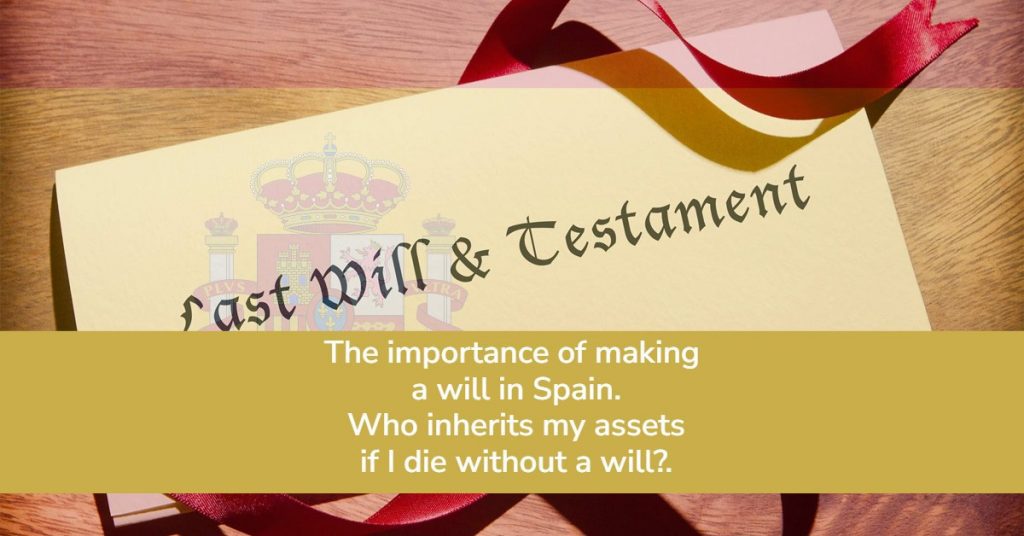The legal world can be complex for those unfamiliar with its rules and terminology. Many people assume that what is “common sense” must also be true in law. But that is not always the case. This lack of knowledge can lead to problems in everyday situations — when buying or selling a property, signing a mortgage, or, as we discuss here, in cases of inheritance without a will in Spain. This week, we address a widespread misconception that can have serious consequences.
What happens when the deceased did not make a will?.
When someone dies without a will, the distribution of their assets is not left to chance. EU Regulation 650/2012 establishes that, in the absence of a will, the law of the deceased’s habitual residence will apply to the succession.
This applies to both Spanish nationals and foreign residents in Spain. In other words, if you are British, French, German, or American and your habitual residence is in Spain, then in the absence of a will here or in your home country, your assets will be distributed according to the Spanish Civil Code, or, where applicable, by the regional civil law of your autonomous community.
The false belief that the spouse automatically inherits everything. Forced heirs and legal shares.
A very common belief among foreign residents in Spain is that, if someone dies without a will, their spouse—often a joint owner—will automatically inherit all the assets. This assumption is completely wrong. Under Spanish law, the Civil Code protects the so-called forced heirs. That is, close relatives who are entitled to a minimum share of the inheritance.
.- If the deceased had descendants, they will inherit almost everything, while the surviving spouse will only have a life interest (usufruct) over one-third of the estate.
.- If the deceased had no descendants but their parents are still alive, the parents will inherit most of the estate, and the surviving spouse will only receive the usufruct of half.
A common example: jointly owned property.
A typical case we often encounter in our firm is the following: a couple without children purchases a property in joint ownership. Upon the death of one spouse, since there is no will and the deceased’s parents are still alive, the property becomes jointly owned by the widow(er) and their in-laws. This situation frequently leads to family disputes that could easily have been avoided.
Even when relations between widow(er) and in-laws remain good, if the in-laws decide to renounce or gift their share to the surviving spouse, such acts are not tax neutral. The widow(er) may face a significant tax burden that could have been avoided if the deceased had made a will.
Conclusion.
Making a will in Spain is a simple, quick, and highly advisable process that ensures your wishes are respected and helps prevent unnecessary family conflicts. At White Baos Lawyers, we are experts in inheritance law. Do not hesitate to contact us—we will assist you in drafting and preparing your will, providing peace of mind for you and your loved ones.
The information provided in this article is not intended to be legal advice but merely conveys information relating to legal issues.
Carlos Baos (Lawyer)
White & Baos.
Tel: +34 966 426 185
E-mail: info@white-baos.com
White & Baos 2025 – All Rights Reserved.
